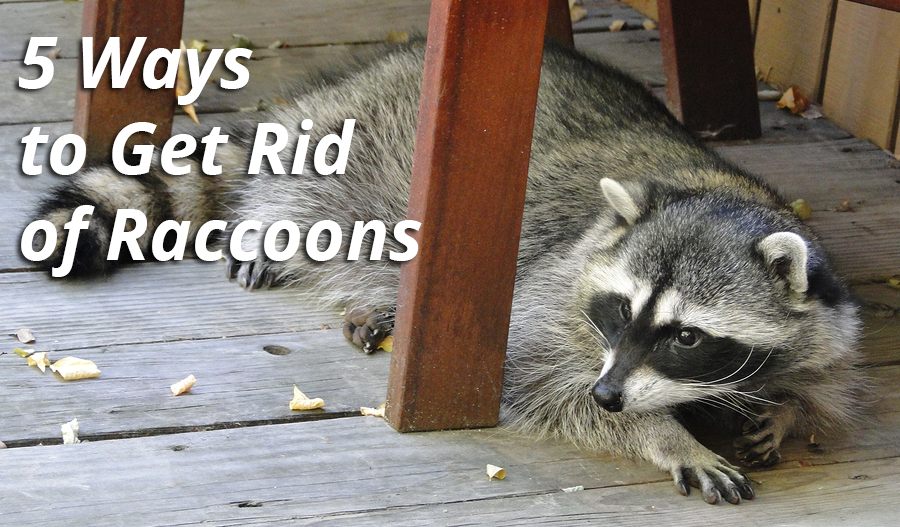Raccoons, a common animal nuisance throughout the U.S., are nocturnal therefore rarely seen during the day. At night, they’ll leave their dens (often your chimney or attic), in search of food and water. Because they’re omnivorous and will eat mostly anything – other animals, fruit, plants, nuts, fish, insects, mice, etc. – there’s likely a food source in or around your home. So what’s the risk? Raccoons are known to carry rabies, cause significant structural damage to homes, destroy gardens, and leave behind a messy trail of trash after raiding garbage cans left outside.
Prevent disease and destruction by following the 5 tips below.
1. Store Garbage Cans Inside
If left outdoors around your home, trash cans will surely attract raccoons looking for food. Instead, keep garbage stored in your garage, basement, or storage building and take out regularly. If you don’t have storage space indoors, use garbage bins with animal-proof lids.
2. Seal Raccoon Entry Points
Inspect your home regularly for access points – holes, gaps, broken vents, loose siding, broken shingles, etc. – and seal or repair these to prevent raccoons from getting inside.
3. Cover Chimney Openings
Chimneys are common entry points into your home for raccoons. Install a mesh cover or cap over chimney openings to keep them out, or call a wildlife control company to do this for you. They will also inspect your home for other issues and provide you with raccoon exclusion solutions to prevent an invasion.
4. Remove Bird Feeders and Pet Food
Having bird feeders and pet food containers around your home will likely attract raccoons as it provides them with a steady food source. Consider removing bird feeders and only leave pet food out when your pets are eating.
5. Lock Pet Doors at Night
Have a doggie door? This is an obvious and easy opening for raccoons to get in. Once your pet is indoors for the night, lock the pet door. You could also consider installing a door that only opens for your pet via an electronic signal, usually in the form of a collar your pet can wear.
These methods are great for raccoon prevention. If you think you have raccoons living in your attic, chimney, or crawl space, you don’t want to block them inside. Call a professional wildlife trapper that can safely remove the raccoons, clean up contamination, and offer exclusion methods that will keep them from coming back.

